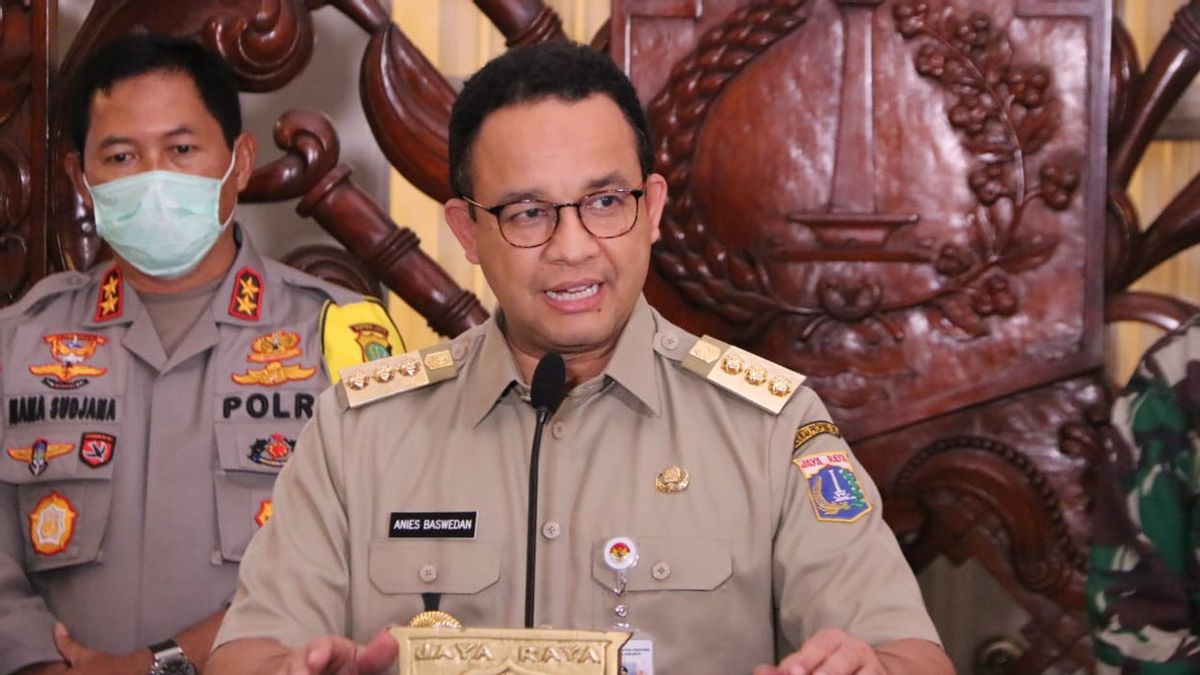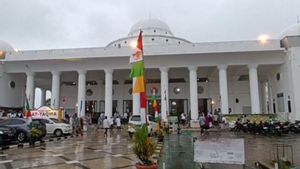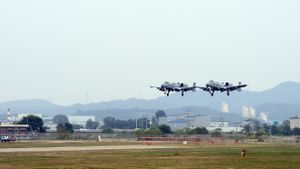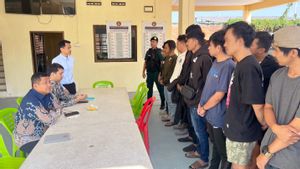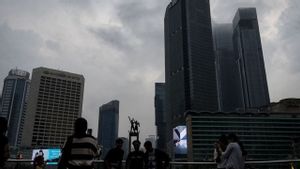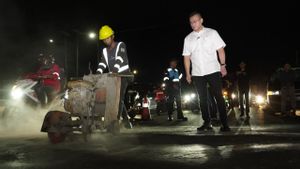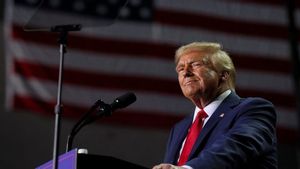JAKARTA - DKI Jakarta Governor Anies Baswedan said there are a number of traditional market traders who reject the odd-even system. They complained about the potential decline in income from sales.
However, Anies could not grant that wish. Thus, said Anies, his party continued to implement an odd-even system to minimize transmission of COVID-19.
"It must be odd-even. Because, currently the capacity is only 50 percent for the safety of traders as well. So, this is not merely a matter of safety of buyers, but also the safety of traders," said Anies when met at Sudirman Station. , Central Jakarta, Wednesday, June 17.
The former Minister of Education and Culture has even cultured traditional market traders. If they persist in rejecting the odd-even, it will again close all markets in Jakarta.
"I tell the traders, the choice is simple. Odd-even (applied) now or not open at all. If you want to join odd-even, we open it now. Otherwise, don't open it," said Anies.
For information, the odd-even system application in the market is done by opening half the market every day. The kiosks with odd numbers operate on odd dates, while the kiosks with even numbers operate on even dates.
"For example, the 1st means odd, odd means the odd number of kiosks opened. Response 2 is even, means the number of kiosks that are open is even," said PD Pasar Jaya President Director Arief Nasrudin.
Arief admitted that his party could not use other land to move half of the traders' stalls so that they could accommodate all of the stalls while maintaining physical distance.
This is because there is no usable land in Jakarta. Moreover, the number of market traders in DKI reaches more than 100 thousand people. Unlike the traditional markets in other areas.
"It is impossible for us to do it (placing a kiosk) on the market yard, because there are various elements of visitors to the market, in Jakarta, some use cars. There are not enough vehicles and land," said Arief.
"Therefore, in Jakarta we still use buildings, why do you have to have a building because that is the building that can make us protect the number of visitors by also implementing an odd-even number of kiosks and controlling consumer traffic," he added.
Then, there are health protocols that must be implemented for traders. Traders are required to use a face shield. Thus, Arief believes that the transmission of the corona virus in the market area can be prevented.
Arief continued, PD Pasar Jaya will also tighten the doors by reducing the entrance to the market, providing hand sanitizers and checking body temperature, and spraying the Pasar area once every two weeks.
"Then, the traders are confirmed to use masks. Hopefully this is part of a practice action to anticipate the spread of COVID-19 in the market," said Arief.
Based on data compiled by the Association of Traditional Market Traders (IKAPPI), at least 64 traditional market traders in Jakarta have been confirmed positive for COVID-19. Dozens of market traders previously underwent rapid tests and showed reactivity, then carried out PCR swab tests and were confirmed positive.
In details, 23 traders were infected with COVID-19 at Serdang Kemayoran Market, 18 traders at Perumnas Klender Market, 14 traders at Rawa Kerbau Market, 3 traders at Kramat Jati Market, 2 traders at Kedip Market, 1 trader at Mester Market, 1 trader at the Market Lontar, 1 trader at the Obor Market, and 1 trader at the Grogol Market.
The English, Chinese, Japanese, Arabic, and French versions are automatically generated by the AI. So there may still be inaccuracies in translating, please always see Indonesian as our main language. (system supported by DigitalSiber.id)
